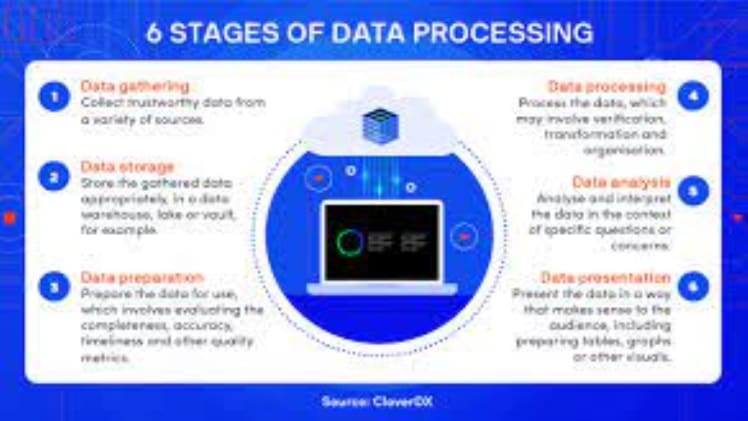Data processing is a process that involves the collection, organization, and analysis of raw data to make it easily understandable and useful. It is the process of transforming raw data into meaningful information that can be used to make decisions and solve problems. Data processing has become increasingly important in the digital age as businesses and organizations rely more and more on their data for decision making.
What is Data Processing?
Data processing is a process that is used to convert raw data into meaningful information. It involves the collection, organization, and analysis of data. Data processing is used to create meaningful information from raw data that can then be used to make decisions and solve problems. Data processing can involve a variety of tasks such as sorting, searching, and analyzing data.
Advantages of Data Processing
- Data processing can help organizations make better decisions and solve problems. By analyzing data, organizations can gain insights into their operations and make more informed decisions.
- Data processing can help organizations save time and money. By collecting and organizing data efficiently, organizations can reduce the amount of time and money they spend on manual data processing tasks.
- Data processing can help organizations improve customer service. By analyzing customer data, organizations can better understand their customers and provide them with better services.
- Data processing can help organizations improve their operations. By analyzing data, organizations can identify areas of improvement and make necessary changes.
Data processing is an essential part of many businesses and organizations today. It can help organizations make better decisions, save time and money, improve customer service, and improve their operations. Data processing is an invaluable tool that can help organizations make the most of their data.

